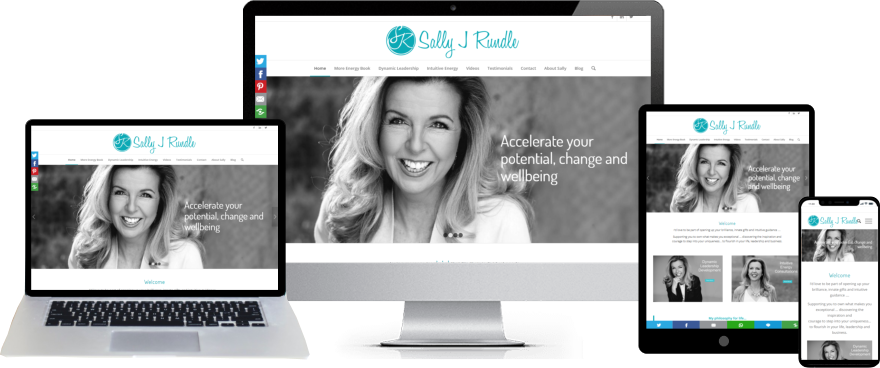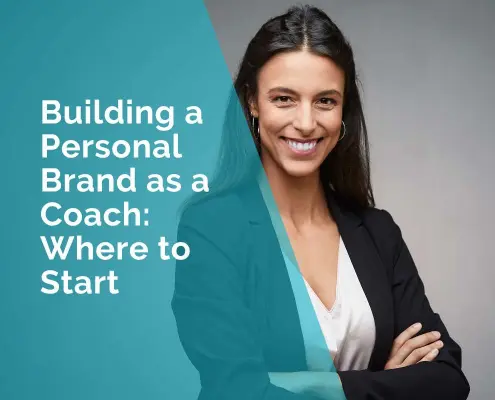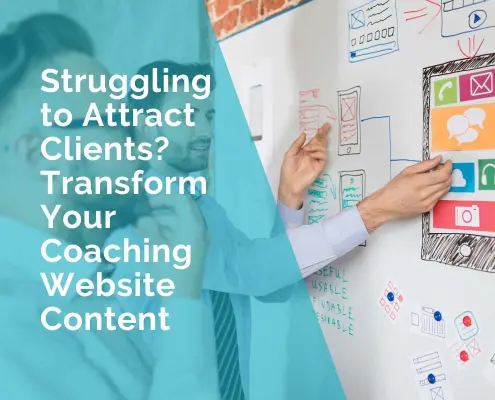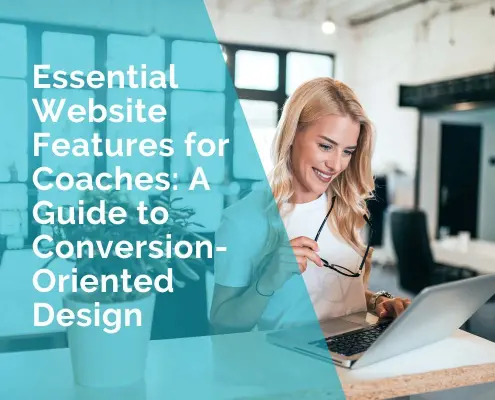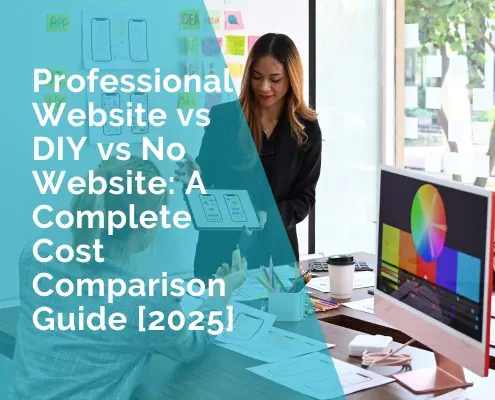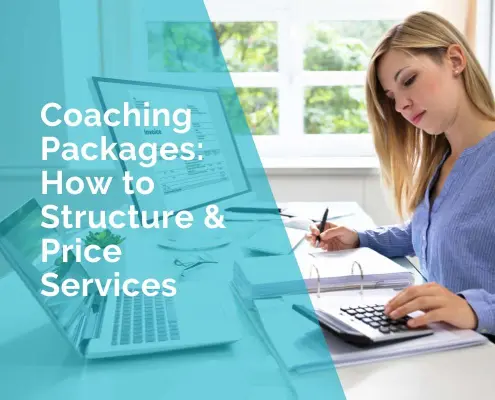How to Find New Clients as a Coach: 15 Proven Strategies [2025 Guide]
Are you struggling to attract coaching clients consistently? You’re not alone. Many coaches across Australia find themselves in a feast-or-famine cycle, uncertain where their next client will come from. The good news? With the right strategies and systems in place, you can create a steady stream of ideal clients who are eager to work with you.
In this comprehensive guide, you’ll discover proven methods to attract and convert your ideal clients, along with practical templates and real-world examples you can implement immediately.
“The key to sustainable coaching success isn’t just about being great at coaching – it’s about creating systems that consistently attract and convert your ideal clients.”
What You’ll Learn:
- Building Your Client Attraction Foundation
- Digital Presence Optimisation
- Client Acquisition Channels
- Lead Generation Systems
- Relationship Building
- Implementation Plan
Building Your Client Attraction Foundation
Before diving into specific strategies, let’s ensure you have the essential foundations in place. Just as you wouldn’t build a house without a solid foundation, you can’t create a sustainable coaching business without these crucial elements.
Strategy 1: Define Your Ideal Client Avatar
The most common mistake coaches make? Trying to help everyone. As the saying goes, “If you’re speaking to everyone, you’re speaking to no one.”
Actionable Exercise: Create Your Ideal Client Avatar
- Demographics:
- Age range
- Location
- Professional status
- Income level
- Psychographics:
- Values
- Goals
- Challenges
- Fears
- Behaviour Patterns:
- Where they spend time online
- How they consume information
- What triggers them to seek help
Strategy 2: Craft Your Unique Value Proposition
Standing out in the crowded coaching market isn’t about being better – it’s about being different. Your value proposition should clearly communicate what makes your coaching distinctive.
Your value proposition needs to answer three crucial questions:
- Who exactly do you help?
- What specific transformation do you provide?
- How are you different from other coaches?
Value Proposition Formula:
I help [specific target audience] to [achieve specific result] through [your unique method/approach], even if [common obstacle they face].
Examples:
❌ Weak Value Proposition:
“I help people achieve their goals and live better lives.”
✅ Strong Value Proposition:
“I help overwhelmed service-based business owners in Sydney double their revenue within 12 months through my ‘Profitable Growth Framework’, even if they’re currently working 60-hour weeks.”
What makes this stronger version work:
- Specific audience: “overwhelmed service-based business owners in Sydney”
- Clear outcome: “double their revenue within 12 months”
- Unique method: “Profitable Growth Framework”
- Addresses common pain point: “currently working 60-hour weeks”
Pro Tip: Test different versions of your value proposition on your website and LinkedIn profile. Track which version generates more enquiries.
Strategy 3: Structure Your Service Offerings
Your service offerings should create a clear journey for potential clients, from initial engagement to deep transformation.
Coaching Service Structure Framework:
1. Entry-Level Offering:
- Free discovery call (15-30 minutes)
- Initial assessment session
- Small group workshop
2. Core Programs:
- 3-month intensive
- 6-month transformation
- 12-month mastery
3. Premium Solutions:
- VIP day intensives
- Retreat experiences
- High-touch packages
Pro Tip: Price your services based on the value and transformation you provide, not the time spent. Australian coaches who package their services effectively typically see a 40% increase in average client value.
Digital Presence Optimisation
In 2025, your digital presence is often the first point of contact with potential clients. Let’s ensure it’s working as hard as you are to attract and convert your ideal clients.
Strategy 4: Optimize Your Website for Conversions
Your coaching website needs to do more than just look professional – it needs to convert visitors into enquiries.
2025 Website Must-Haves for Coaches:
- Mobile-first design (87% of coaching enquiries now come from mobile devices)
- Clear call-to-action buttons
- Social proof elements
- Streamlined booking system
Website Conversion Checklist:
- Homepage that speaks directly to your ideal client’s pain points
- Compelling ‘About’ page that builds credibility
- Clear service packages with pricing transparency
- Easy-to-find contact information
- Client testimonials and case studies
- Lead magnet or free valuable resource
Learn more about creating a high-converting website in our guide 7 Ways to Turn Your Website Into a Customer Generation Machine.
Strategy 5: Develop a Content Strategy
Content is your 24/7 sales team. In 2025, successful coaches are using a mix of content types to attract and nurture potential clients.
Strategic Content Mix for Coaches:
1. Blog Posts (SEO & Authority)
- How-to guides
- Client success stories
- Industry insights
- Example: “5 Signs You’re Ready for a Business Coach”
2. Videos (Engagement & Trust)
- Quick tips
- Behind-the-scenes glimpses
- Client testimonials
- Live Q&A sessions
3. Email Newsletter (Nurture & Convert)
- Weekly insights
- Success stories
- Exclusive tips
- Special offers
Success Story: Melbourne-based leadership coach Mark increased his monthly enquiries by 300% after implementing a consistent content strategy focusing on LinkedIn articles and weekly email newsletters using GetResponse.
For more content marketing strategies, check out our comprehensive guide on Developing a Content Marketing Strategy.
Client Acquisition Channels
Successful coaches in 2025 are using a multi-channel approach to attract clients. Let’s explore the most effective channels and how to maximise each one.
Strategy 6: Master LinkedIn for Client Attraction
LinkedIn has become the primary platform for coaches to attract business clients. Here’s how to leverage it effectively:
Profile Optimisation:
- Professional headshot
- Compelling headline that includes your UVP
- Detailed ‘About’ section with clear call-to-action
- Featured section showcasing client results
Content Strategy:
- Share client success stories (with permission)
- Post thought leadership articles
- Create carousel posts with actionable tips
- Engage with potential clients’ content
Learn more about social media marketing in our guide Content Marketing on Social Media: 10 Tips that Work All the Time.
Strategy 7: Implement Local SEO
With more people searching for coaches online, SEO has become crucial for attracting organic traffic.
Key SEO Strategies for Coaches:
- Optimise for local search terms (e.g., “business coach Sydney”)
- Create content around common coaching questions
- Build a Google Business Profile
- Encourage and respond to Google reviews
For detailed SEO guidance, visit our SEO Made Easy: How to Optimise Your Website for Search Engines guide.
Strategy 8: Build Strategic Partnerships
Building relationships with complementary service providers can create a steady stream of referrals.
Potential Partnership Opportunities:
- Business advisors and accountants
- HR consultants
- Website designers and digital marketers
- Industry-specific service providers
Partnership Action Steps:
- Identify 5-10 potential partners who serve your ideal clients
- Create a clear value proposition for partnerships
- Develop a simple referral system
- Regular check-ins and relationship nurturing

Lead Generation Systems
Converting interest into enquiries requires systematic approaches and proven frameworks.
Strategy 9: Create Compelling Lead Magnets
Effective lead magnets for coaches in 2025:
- Self-assessment tools
- Quick-start guides
- Free discovery session booking
- Mini-training videos
- Downloadable worksheets
Learn more about creating effective lead magnets in our guide How To Build a Free Lead Generation Machine for Your Business.
Strategy 10: Build an Email Nurture Sequence
Using GetResponse, create an automated email sequence to nurture leads:
Recommended Sequence:
- Day 1: Welcome and deliver lead magnet
- Day 3: Share a client success story
- Day 5: Provide valuable tips related to their challenge
- Day 7: Invite to book a discovery call
- Day 10: Share testimonials and case studies
- Day 14: Present your coaching offers
For email marketing strategies, check out our guide on Email Marketing For Small Business Owners.
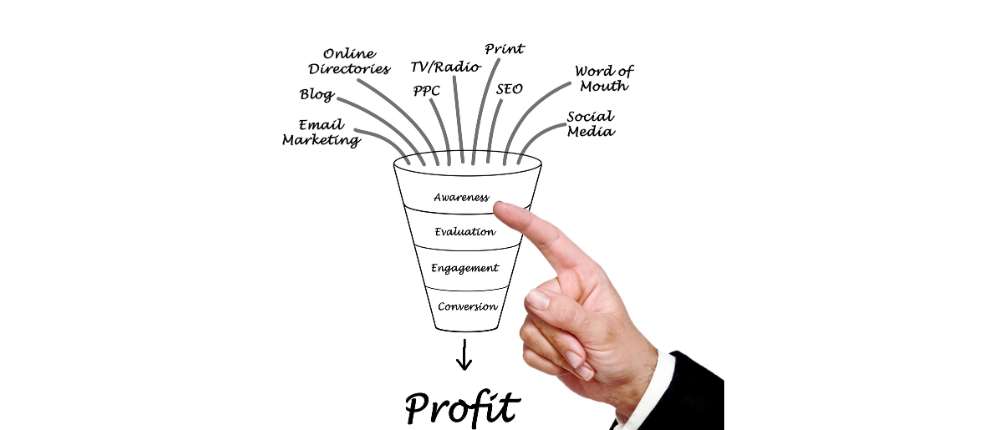
Relationship Building
Building strong relationships is crucial for long-term coaching success. Here’s how to nurture connections that lead to clients and referrals.
Strategy 11: Perfect Your Discovery Call Process
Structure your discovery calls to demonstrate value and qualify potential clients:
15-30 Minute Call Structure:
- 2 minutes: Warm welcome and set expectations
- 5 minutes: Listen to their current situation
- 10 minutes: Ask strategic questions about goals and challenges
- 5 minutes: Share how you might help
- 3 minutes: Discuss next steps if there’s a fit
Key Questions to Ask:
- What prompted you to seek coaching now?
- What have you tried before?
- What would success look like in 12 months?
- What’s stopping you from achieving this on your own?
Strategy 12: Implement a Client Success System
Create a systematic approach to ensure client success and generate referrals:
Onboarding Process:
- Welcome packet with expectations and resources
- Initial goal-setting session
- Communication preferences and boundaries
- Tools and resources access
Progress Tracking:
- Regular milestone check-ins
- Success metrics documentation
- Testimonial collection
- Case study creation

Implementation Plan
Follow this 90-day plan to systematically implement these strategies.
Strategy 13: Launch Your Foundation Phase- First 30 Days
Week 1-2:
- Clarify your UVP
- Define ideal client avatar
- Audit current website
- Set up GetResponse account
Week 3-4:
- Create lead magnet
- Optimise LinkedIn profile
- Set up discovery call system
- Draft email nurture sequence
Strategy 14: Execute Content Creation Phase – Days 31-60
Week 5-6:
- Develop content calendar
- Create 4-6 cornerstone blog posts
- Record video testimonials
- Build partnership list
Week 7-8:
- Launch email newsletter
- Start LinkedIn content strategy
- Implement SEO basics
- Begin partnership outreach
Strategy 15: Optimize Your Systems – Days 61-90
Week 9-10:
- Review and adjust website conversion points
- Refine discovery call process
- Analyse content performance
- Optimise lead magnet conversion
Week 11-12:
- Scale what’s working
- Automate repetitive tasks
- Set up referral system
- Plan next quarter’s goals
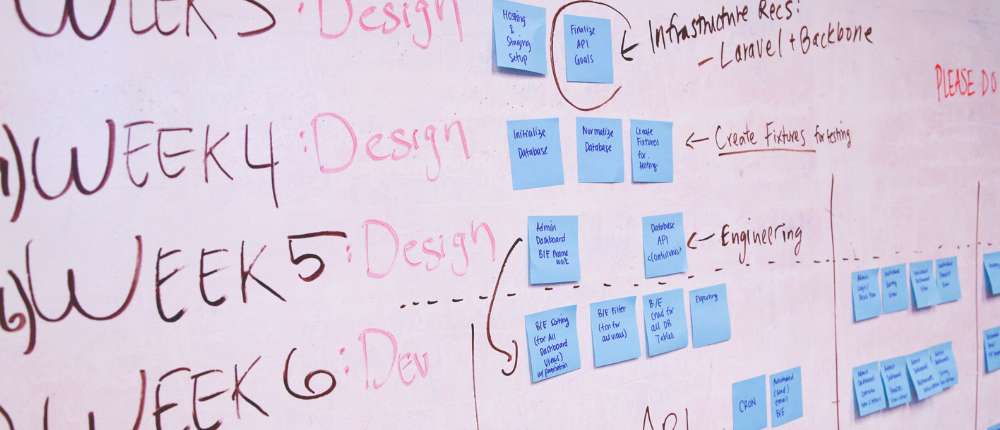
Next Steps
Ready to transform your coaching practice? Start with these immediate actions:
- Download our Website Design Checklist to audit your current website
- Review our guide on creating compelling service pages
- Book a free consultation to discuss your coaching website needs
Need help implementing these strategies? Our team specialises in creating high-converting websites for coaches and consultants. Learn more about our services or contact us to discuss your specific needs.
Ready to take your coaching business to the next level? Contact us today to discuss how we can help you create a website that attracts and converts your ideal coaching clients.
Recommended Resources and Tools for Coaches
Client Management & Scheduling
- Calendly – Automated scheduling and booking
- Acuity Scheduling – Professional appointment scheduling
- Practice Better – Specifically designed for coaches
Email Marketing & Client Communication
- GetResponse – Email marketing and automation (Read our GetResponse guide)
- Zoom – Video coaching sessions
- Loom – Record personalised video messages
Website & Content Creation
- WordPress – Website platform (Why WordPress is best for coaches)
- Canva – Create professional graphics
- Google Workspace – Professional email and document management
Payment Processing
- Stripe – Payment processing
- PayPal – International payments
- Square – In-person and online payments
Client Resources
- Google Forms – Create client questionnaires
- Trello – Project management and goal tracking
- Asana – Task management and collaboration
Need help setting up your coaching website with these tools? Contact us for professional website design services specifically for coaches.
Frequently Asked Questions
How do coaches get their first clients?
Most coaches get their first clients through their existing network, LinkedIn outreach, and offering discovery calls. Creating valuable content and asking for referrals from your professional network are also effective strategies for new coaches.
How much should I charge as a new coach?
New coaches in Australia typically charge between $150-$300 per hour for one-on-one sessions. However, it’s more effective to create packages based on value and outcomes rather than hourly rates. Consider starting with a mid-range price point and increasing as you gain experience and testimonials.
How do I attract high-paying coaching clients?
To attract high-paying clients, focus on solving specific, high-value problems, showcase clear ROI through case studies, position yourself as an expert through content creation, and build a strong presence on professional platforms like LinkedIn.
Do I need a website to start a coaching business?
While you can start coaching without a website, having a professional online presence significantly increases your credibility and makes it easier for potential clients to find and trust you. A website serves as your 24/7 marketing tool and client attraction platform.
How many clients should a coach have?
Most full-time coaches work with 15-20 active clients at a time. This allows you to provide quality service while maintaining work-life balance. The exact number depends on your coaching style, program length, and energy levels.
What qualifications do I need to be a coach in Australia?
While coaching is currently unregulated in Australia, having relevant certifications increases credibility. Consider getting certified through recognised organisations like ICF (International Coach Federation) or studying specific methodologies related to your coaching niche.
How do I create a coaching package?
Create coaching packages based on client outcomes rather than time. Include clear deliverables, session frequency, support between sessions, and any additional resources. Most successful coaches offer 3-month, 6-month, and 12-month packages
Is coaching a profitable business?
Coaching can be highly profitable with the right business model and marketing strategy. Successful coaches typically earn between $80,000-$200,000+ annually, with some earning significantly more through group programs and online courses.
How do I scale my coaching business?
Scale your coaching business by creating group programs, developing online courses, running workshops, building a team of associate coaches, and creating passive income streams through digital products.
How do I get coaching clients online?
Get coaching clients online through content marketing, social media presence, email marketing, paid advertising, and virtual networking. Focus on building authority in your niche and creating valuable free content that showcases your expertise.
What is the best social media platform for coaches?
LinkedIn is generally the most effective platform for business and executive coaches, while Instagram works well for life and wellness coaches. Choose platforms where your ideal clients spend time and align with your coaching style.
How long does it take to build a successful coaching business?
Most coaches take 6-12 months to build a sustainable business. The timeline varies depending on your network, marketing efforts, niche, and ability to demonstrate results. Focus on consistent action and building credibility.
Should I niche down as a coach?
Yes, niching down helps you stand out in a crowded market, command higher fees, and create more targeted marketing messages. Choose a niche based on your expertise, market demand, and passion for serving that specific audience.
How do I overcome imposter syndrome as a new coach?
Combat imposter syndrome by focusing on the value you provide, collecting client testimonials, continuing your education, and remembering that your unique perspective and experience are valuable. Start with clients where you’re confident you can deliver results.
 Ivana Katz from Websites 4 Small Business is an award winning web designer who builds websites that build your business. She provides unbeatable web design services to fit your budget.
Ivana Katz from Websites 4 Small Business is an award winning web designer who builds websites that build your business. She provides unbeatable web design services to fit your budget.
The end result? Professional, custom-made sites that give your business the extra oomph it needs to stand out from the competition and make an impact.
Whether you’re a brand-new business or an established one ready to improve your digital presence, Ivana makes it easy to get your business online very quickly. Her websites are professional, tailored to fit your budget, and give your business a serious boost.
Download your FREE copy of “Ultimate Website Design Secrets Blackbook – 10 Bulletproof Strategies for Designing an Outrageously Successful Website”


